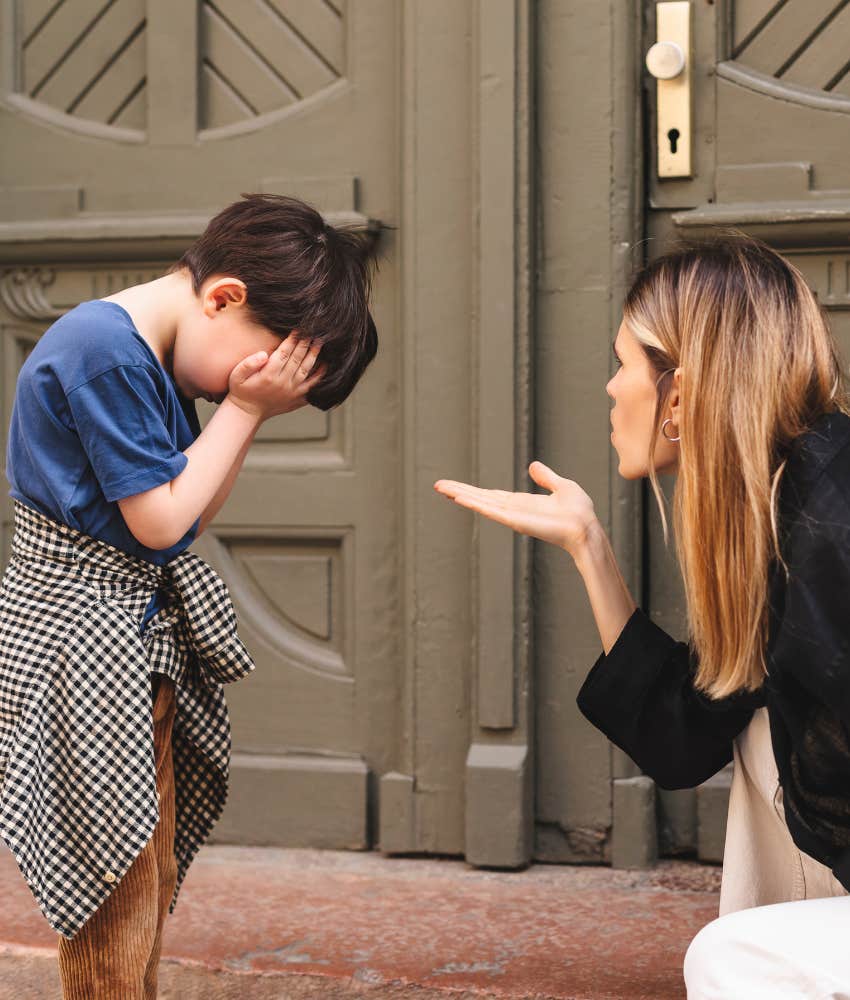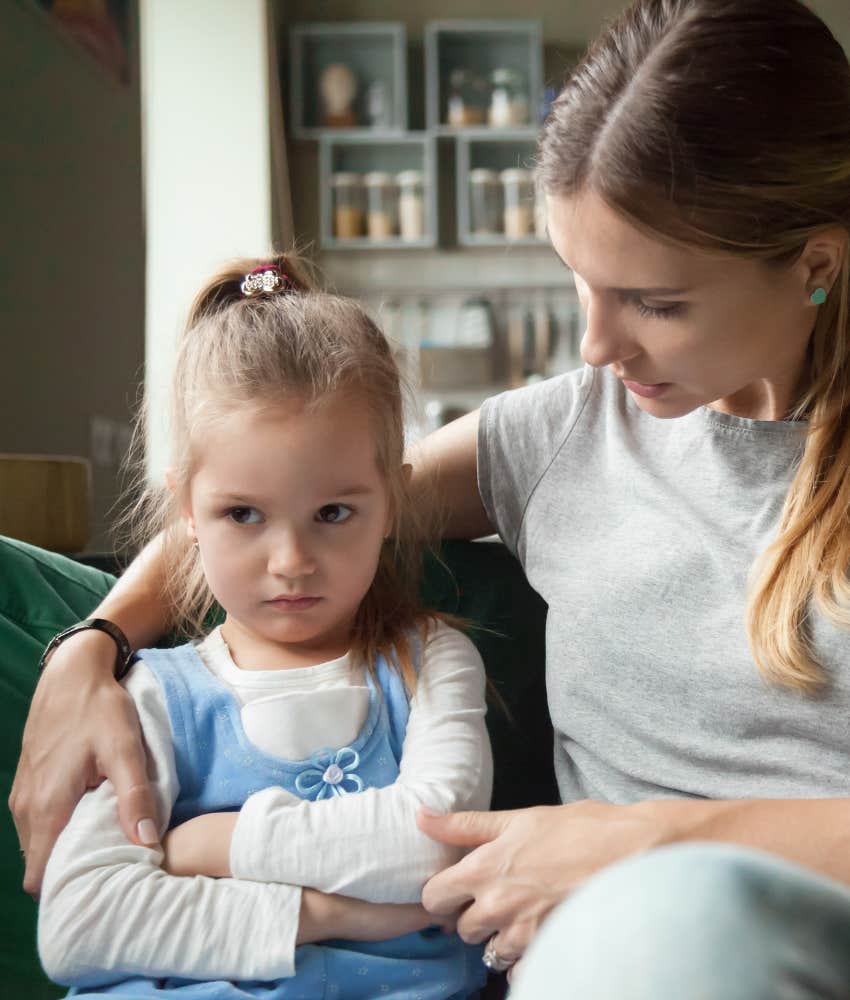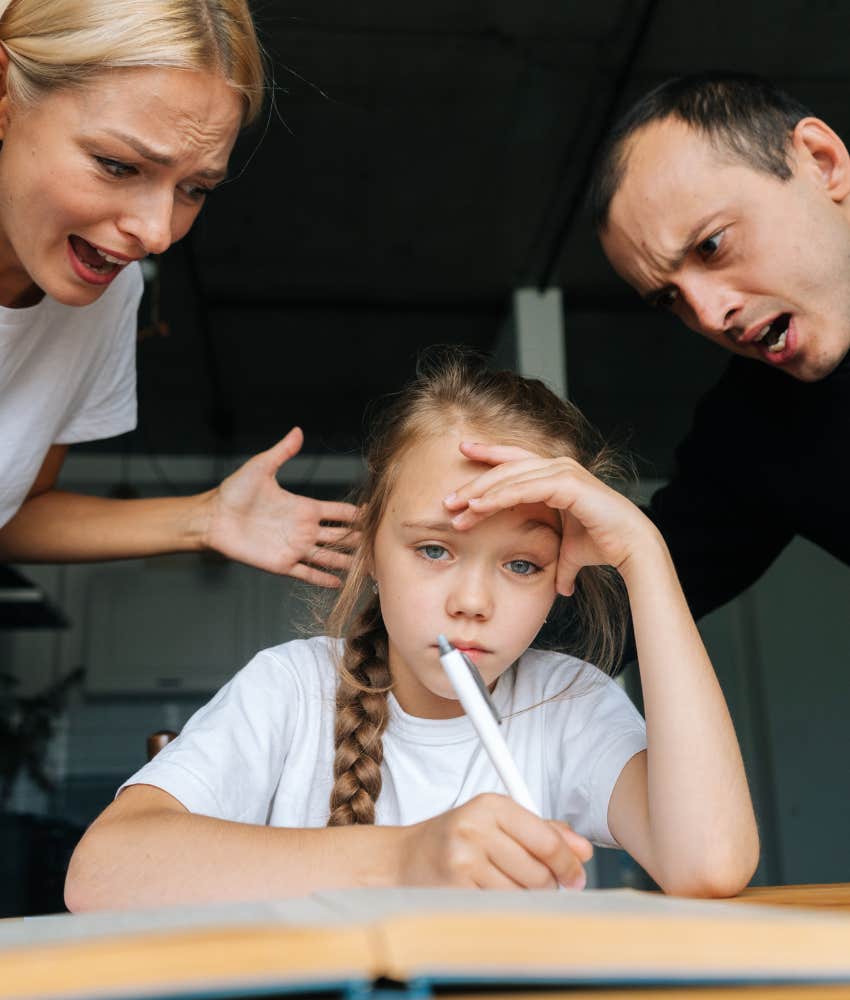Your Parents Raised A Good Person If They Did These 5 Things When You Misbehaved
Parenting trends come and go, but the rules for raising good humans rarely change.
 Vitalii Khodzinskyi | Unsplash
Vitalii Khodzinskyi | Unsplash A few years ago, Time Magazine alerted parents that time-outs, a popular punishment for kids, may affect the child's brain negatively. Parents and grown kids alike wondered how to react when their kids misbehaved without using corporal punishment or time-outs.
Daniel J. Siegel, M.D., and Tina Payne Bryson, Ph.D., explain in the article that "Discipline is about teaching — not about punishment — and finding ways to teach children appropriate behavior is essential for healthy development."
If you were raised to be a good person, you probably experienced discipline more like Siegel and Bryson recommend. And if you're a parent now, these tips can help you raise good future adults!
Five things parents your parents did when you misbehaved to help you become a good person
1. They didn't rely solely on time-outs.
 Ekateryna Zubal | Shutterstock
Ekateryna Zubal | Shutterstock
Repeated experiences can alter the shape and form of the brain, so don't use time-outs as the only method of disciplining your child.
Have other options readily available, and be clear about your intention with a time-out, which will lead me to the next point.
2. They taught you to take a break, not just punish.
 fizkes | Shutterstock
fizkes | Shutterstock
Keep the following things in mind: Time-out was never intended to be a punishment; it was intended to be a break from the situation to get calm so that learning could occur.
On the other hand, some argue that a three-year-old may be unable to calm himself, and isolating him sends a message that you only love him when he is good.
When time-outs (or taking a break from a situation) are done well, however, a child can walk away from the problem that is likely causing frustration or anger. She then gets to cry and release that anger in a way that is not hurtful to herself or someone else.
The parent then comes in when they are regulated and has the opportunity to hold, soothe, and teach the lesson that they want their child to understand.
3. They gave themselves a break, too.
 AstroStar | Shutterstock
AstroStar | Shutterstock
Have you been using time-outs for the child or the parent?
In many cases, I think they are as much for the adult as for the child. Sometimes, after a parent has utilized all the readily available tools (bribes, threats, short-term ignoring), they feel they will explode.
Then, they quickly have two tools available: yelling or time-out.
When your child looks at you and says, " No, no," to a time-out, if you cannot remain calm, I support you by saying, "I need a break for a few minutes."
I would rather a frustrated parent take a break than risk yelling or being physically rough out of anger.
4. They employed 'time-in's' to stay connected.
 Dikushin Dmitry | Shutterstock
Dikushin Dmitry | Shutterstock
This parenting tool is for staying emotionally and physically connected with your child in emotional distress.
It can be highly effective and rewarding when the parents are truly calm, and the child is responsive to being held, sat next to, or rocked when they are upset.
Not every child responds to this in a moment of stress, just like not every child responds to time-out. In cases of childhood trauma, abuse, or neglect, time-in should be used as a primary mode of intervention.
5. Most importantly, parents who raise good people know their kids well
I agree with the article that "reflection is created in a relationship"; however, the most important is that the adult relating to the child is calm and regulated.
Since this is often not the case, I propose that parents focus on calming themselves first the next time a conflict arises with their child and then see how a time-in might enhance the relationship.
Dr. Sheryl Ziegler is a mother, Doctor of Psychology, speaker, and author of Mommy Burnout: How Addressing Yours Will Make You A Better Mother And Create A Better Life For Your Children.

